In the course of his rounds on Monday, Memphis mayor Willie Herenton was preparing to leave City Hall for an engagement across town when it was discovered that the Toyota van in which he is normally transported from place to place had a flat tire. So His Honor had to cancel out. Figures.
It hasn’t been a good week for the mayor, nor a good month, nor, for that matter, a good year. Herenton began 2007 at the Convention Center with one of those traditional fustian ventures with which the city’s four-term mayor, for better or for worse, honors attendees at his annual New Year’s Day prayer breakfast.
The mayor, an alpha male if there ever was one, annually contrives to bestow upon the gathered media and masses something dramatic, the latest installment of the Big Picture — be it a declaration of war against his City Council or an affirmation of his chosenness by God or merely another vow to pursue the elusive goal of city/county consolidation.
This year was different. This year, Herenton unveiled a proposal that merely mystified his audience. He proposed to raze the Mid-South Coliseum, the Liberty Bowl, and what remained of the Libertyland grounds to pursue an extensive redevelopment of the Fairgrounds and its environs around a brand-new “state of the art” football stadium. Estimated price tag? $200 million, to be financed by a bond issue.
Skeptics immediately pointed out the “been there/done that” aspect of building a stadium at the Fairgrounds and the fact that the NFL, for which such a thing might serve as bait, had bypassed Memphis for Nashville years ago. One of the chief boosters of the University of Memphis, banker Harold Byrd, argued convincingly that the university, the chief acknowledged beneficiary, would gain more from an on-campus stadium.
Even the disbelievers assumed that there was method to the madness, however, and that behind the mayor’s proposal had to be some group of far-sighted social engineers or maybe just a cabal of self-interested developers looking to profit from what would be a socially useful scheme. In the fullness of time, it was thought, the “invisible hand” of these sponsors and the nature of their plans might be made clear.
But no plans have emerged, nor has any group of identifiable prime movers. Truth be told, once the mayor’s proposal was up the flagpole, nobody saluted it.
Quite as much as the city’s on-again/off-again credit rating and its sputtering economy, its ever-frightening crime statistics (to give the mayor his due, he has also proposed buffing up the police force), and the aura of corruption and favoritis that hover over city government, the unsatisfying vagueness of Herenton’s stadium proposal may have galvanized what would seem unmistakably to be a concerted reaction against him.
Two weeks ago, the Flyer published the general findings of two independent polls which showed that the incumbent’s approval rating had slipped badly among both blacks and whites and that Herenton was running behind maverick City Council member Carol Chumney.
Perhaps that was on the strength of Chumney’s consistent opposition to the governmental status quo and perhaps it was merely because her name recognition and public profile are (so far) greater than those of ex-MLGW CEO Herman Morris and former Shelby County commissioner John Willingham, two other opponents of record.
In the aftermath of the general public shock, The Commercial Appeal commissioned and published its own poll, which corroborates the earlier findings.
Beyond doubt, Mayor Willie Herenton, once regarded as “mayor for life,” now faces real challenges to his reign.
“I honestly think the mayor is a great leader, as able now as he ever was and totally deserving of reelection” was the almost wistful appraisal this week of Jon Thompson, an entrepreneur who served in Herenton’s first term as head of the now-dormant Wonders series. “But in the course of time there’s a fatigue that settles in, and that’s what happening to him, I think.”
That bottom line is encountered frequently among members of the city’s financial elite, not all of whom are as loyal or appreciative in their views as is Thompson.
It is no secret, in fact, that there is an ongoing effort among a number of established movers and shakers, many of them contributors to the mayor’s hefty campaign war chest (estimated to be as high as $600,000) to draft as a successor to Herenton his longtime friend and former campaign chairman, Shelby County mayor A C Wharton.
In those same early polls that demonstrated Herenton’s vulnerability, the easygoing Wharton fared demonstrably better than his Memphis counterpart. A survey commissioned by well-connected businessman Karl Schledwitz and performed by established pollster/strategist John Bakke reportedly showed Wharton’s “negatives” to be only 8 percent, as compared to Herenton’s whopping 51 percent.
Wharton has publicly acknowledged that he is the object of continued pursuit from well-placed advocates for his candidacy (telling the Flyer, however, that he wouldn’t “kiss and tell”) and has said pointedly that he would not run against Herenton. At the same time, he has made clear his interest in running if the Memphis mayor should, for any reason, not be a candidate.
One member of the local political establishment who has actively proselytized for a Wharton candidacy, whether or not Herenton remains in the field, says that the county mayor promised him a definitive answer “in 30 days.” Asked this week when that conversation took place, the would-be Wharton supporter reflected and realized to his surprise that the 30-day time period was ripe for expiration.
Even as pressure is mounting on Wharton to declare his availability, so too is Herenton being given broad hints to consider withdrawing. The progression of unflattering polls, together with an increasingly rampant public speculation about his vulnerability, makes for increased pressure — but also for increased resistance.
Echoing the general feeling among those who know the mayor well, Thompson said, “I can’t imagine his giving in to public pressure.” Says another friend: “He’s too stiff-necked. The more people insist, the more he’ll resist.”
Then there’s Sidney Chism, former Teamster leader, former Democratic Party chairman, a power broker in his own right, and historically the mayor’s chief ally out in the rough and tumble of practical politics. Said Chism this week: “Wait ’til I get through. Everybody’s got a plan until they get hit.”
What Chism’s threat means in practice might vary from opponent to opponent. But there’s no question that Herenton, the towering former Golden Gloves boxing champion who once boasted, “I never got beat, once I got my growth,” has not once gone down for the count since he entered public life.
Not as a rising school administrator in the late 1970s who forced a reluctant school board to name him the first black superintendent of Memphis City Schools and, hit by both a sexual and an administrative scandal, survived more than one purge attempt before leaving the job on his own terms; not as the contender who outlasted several other African-American worthies (including one A C Wharton, then the Shelby County public defender) to become a consensus candidate for mayor in 1991; not as the underdog who, as down in the polls then as he is now, overtook highly favored incumbent mayor Dick Hackett to become — by the slim margin of 142 votes — the first elected black mayor in Memphis history.
And there was 1999, when Herenton, running for a third term, was challenged by a well-credentialed multi-candidate field that included then city councilman Joe Ford. Now chairman of the Shelby County Commission, Ford was a well-liked representative of Memphis’ proudest and most politically powerful clan — one which then numbered in its ranks a congressman, a state senator, a county commissioner, and — most importantly — former U.S. representative Harold Ford Sr., whose command of inner-city loyalties was considered incontestable and whose political organization and patented election-day sample ballots were the means by which candidate after candidate got elected.
It had become axiomatic, an urban legend of sorts, that Herenton himself would have been beaten by Hackett on his first mayoral try in 1991 but for the last-minute all-out intercession on his behalf by the senior Ford, who, so went the story, put aside his natural feelings of rivalry to make political and social history.
As the inevitable tension between himself and the Fords asserted itself over the years, Herenton was determined to disprove that piece of conventional wisdom. He wanted it known that he could win altogether by himself, indeed had won the prize on his own. Having Joe Ford as an opponent gave him an opportunity. The mayor would turn the young councilman into a straw man.
And so it came to pass. In the very first forum involving the two of them, Herenton waited until Joe Ford started floundering on an answer to someone’s question and then called out to the candidate’s older brother in the audience: “Harold, you got to do a better job of getting this boy ready!”
“Boy”? Herenton had already used that unnerving signifier, especially insulting in the macho-conscious black community, to dismiss another opponent, then county commissioner Shep Wilbun. Candidate Ford seemed flustered at the insult and never quite recovered his aplomb in that race. Both he and Wilbun went down hard, along with the rest of a fairly star-studded field whom the mayor, in his election post-mortem with the Flyer, would dismiss as “clowns.”
Just as during his pugilistic youth, the mayor seems to relish the opportunity for mano-a-mano combat.
A case in point was Herenton’s statement last month in an interview on the historic black radio station WDIA. Asked about opponent Herman Morris, who had just announced his candidacy for mayor, Herenton responded thusly: “I want the world to know, there’s a man up in here in City Hall. If they’re looking for a boy, they identified one in Herman Morris, but he ain’t going to enter this gate.”
Once again, “boy”, the telltale epithet. And “gate”? The archaic, quasi-epic sound of that word was counterpointed ironically by its frequent use these days as a suffix to scandal.
The mayor has been equally blunt in dealing with the challenge from Chumney, whose first-place finish in this month’s raft of polls has energized her campaign and buoyed her hopes.
Back in February 2005, the first-term councilwoman was busy building a profile as an outspoken people’s champion, unafraid of tangling with the mayor or her council mates or anybody else in government. That her adversaries considered her an opportunist did not detract from the fact that she was amassing a following and seemed bent on running for city mayor this year.
At the close of a well-attended affair at The Pyramid that month, in which Herenton had presented his latest plan for city/county school consolidation, Chumney began a long discourse of her own, the point of which seemed to be that the mayor’s plan resembled consolidation proposals she had made during her earlier unsuccessful race for county mayor in 2002.
She had reached the point of reprising her decision not to solicit campaign money from developers when Herenton cut in: “Miss Chumney, I don’t think we need this shit,” muting the last word only a little, and continued on, “I don’t feel comfortable going through and hearing all this political dialogue and stuff.”
After Herenton’s remark prompted a walk-out in protest from councilman Brent Taylor, normally a Chumney antagonist, the mayor continued: “I don’t need to hear about her political campaign where she lost,” and, looking straight at Chumney, added, “You’re gonna lose the next one too.”
So far the third well-known candidate in the mayor’s race, Willingham, has escaped such direct fire from Herenton. But this is due as much to the former commissioner’s relatively dim prospects as measured by the polls as it is to any gallantry or forbearance on the mayor’s part.
But has Herenton, whose political style, like his pugilistic one, has been equal parts brawler and artful dancer, finally begun to wear down in the late rounds? Have the blows finally begun to take their toll? The evidence of the polls reinforces what so many had anecdotally sensed beforehand.
Aside from where they stand right now, what are the prospects of this year’s crop of aspirants?
 Greg Cravens
Greg Cravens
Carol Chumney: Can she really own a double-digit lead over the mayor, as suggested by the CA‘s survey? If so, her standing is testament to the value of single-mindedness. Somewhat to the scorn of her detractors and to the admiration of her mainly grass-roots backers, lawyer Chumney seems at times to have no life other than her public one.
Upon taking office in 2004, Chumney began a steady round of “town meetings” and “coffees with Carol.” Modestly attended in the beginning, these have attracted larger crowds in tandem with her rise in public consciousness as a steady critic of the governmental buddy system, of budgetary excess, and of a variety of boondoggles. (She was instrumental, for example, in publicizing the notorious — and now repealed — city pension plan that allowed full retirement benefits after only 12 years of service.)
Her decision to take on both the mayor and the council, coupled with her go-it-alone style, led directly to an ostracism akin to that which she endured through most of her 13-year service as a member of the Tennessee House of Representatives from Midtown. But her determination did earn her a brief stint in the Democratic leadership in Nashville, and she would ultimately carve out a reputation there as a child-care reformer, heading up a special children’s services committee.
The mere prospect of Chumney being elected mayor has ensured that the usual suspects among zoning lobbyists have attended her fund-raisers. Still, she is cash-poor compared to Herenton and has less visible support among likely big-ticket donors than does rival Morris. Add on the fact that her very independence scares defenders of the status quo, who see her as reckless. Her strengths are also her weaknesses.
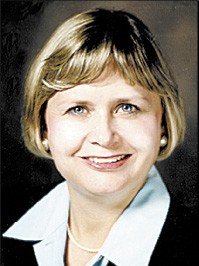
Herman Morris: Well-spoken and armed with professional accomplishments as a lawyer and as head of MLGW (where he was forced out by Herenton in 2003), Morris was something of a draftee candidate in his own right. He has been taken up by such exemplars of the Republican Party establishment as political veteran John Ryder, but his chorus of admirers extends also to the ranks of Democratic activists and to the likes of Russell Sugarmon, the venerable, respected civil rights pioneer who retired last year as a General Sessions judge and now heads Morris’ campaign.
Despite his stewardship at MLGW and an earlier prominence as lawyer for and chairman of the local NAACP, Morris’ public profile has been remarkably low. Insofar as the general public has noted him at all, it was for his MLGW service — a tenure which came back to haunt Morris when, just as Joseph Lee, a Herenton appointee, began taking heat for over-indulging the utility bills of Councilman Edmund Ford and other highly placed deadbeats, the mayor’s backers leaked evidence that Morris had kept a courtesy list of his own.
Still, Morris seems to be running within a hair’s breadth of Herenton, and his seemingly apolitical style can be misleading. As he noted recently, he is a veteran of most of the early political campaigns of the city’s African-American pathfinders — those of Sugarmon, A.W. Willis, Otis Higgs, and others.
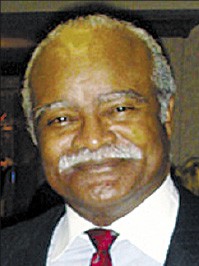
John Willingham: No one gives the former commissioner much of a chance, and the polls, which show him trailing well behind the others, seem to agree.
However, he is now acquiring some overdue recognition for some genuine muckraking accomplishments: More than any other public figure, for example, Willingham did his best to call attention to what are generally recognized now as the weaknesses, and worse, of the city/county deal with the Memphis Grizzlies.
Long before the scandal erupted concerning misallocation of federal and state funds to build a for-profit parking garage for the Grizzlies’ management at FedExForum, Willingham was noting discrepancies between what public contracts called for and what was being built. His past career as an engineer was a help in that regard. Willingham, who has also been a barbecue maven and once served as an official in the Nixon administration, is something of a Renaissance man, in fact.
“Crimes have been committed,” Willingham avers, and he intends to prove the fact during his mayoral campaign. Even if his own campaign efforts should come to naught, he is in a position to do the incumbent mayor some harm. And, before his chances are discounted absolutely, it needs to be remembered that until the very end of his victorious 2002 commission race against Morris Fair, a generally esteemed incumbent, Willingham was largely disregarded there, too.
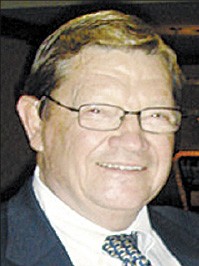
A C Wharton et al.: There is a general feeling, settling into a consensus, that the mayoral field is still incomplete. The same consensus holds that Wharton, the choice of most of those yearning for an alternative to Herenton, would be a slam-dunk winner if he chose to enter the race.
Meanwhile, there are reports of others advertising their credentials — unknown quantities as well as known ones. Only next week will it even be possible for candidates, those already in the field and those yet to be identified, to pull qualifying petitions from the Election Commission.
But there is no doubt about one thing. Willie Herenton, the erstwhile “mayor for life,” will be fighting for his political life — if indeed he remains in the mayor’s race at all.
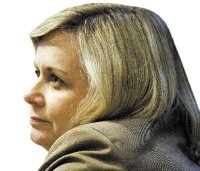 Justin Fox Burks
Justin Fox Burks  Jackson Baker
Jackson Baker 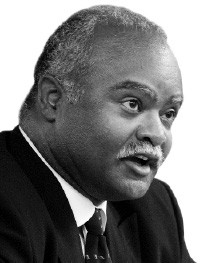 (AP Photo/Wade Payne)
(AP Photo/Wade Payne) 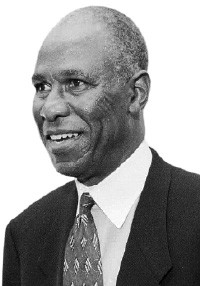 (AP Photo/John L. Focht)
(AP Photo/John L. Focht) 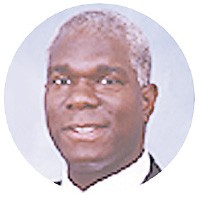
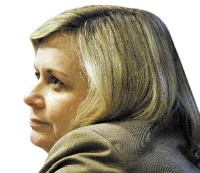 Justin Fox Burks
Justin Fox Burks  Jackson Baker
Jackson Baker